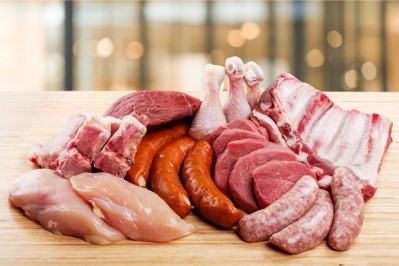Calorie labelling on restaurant menus produces healthier meals: study

Restaurants that display calories on their menus serve healthier food than those that don’t, a UK study has found.
Researchers from the Centre for Diet and Activity Research (CEDAR), part of the MRC Epidemiology Unit at the University of Cambridge, looked at energy and nutritional information on the websites of the most popular 100 UK restaurant chains during March and April 2018. Of these 100 restaurants, 42 provided some form of energy and nutritional information online, but only 13 provided menu labelling in stores.
Items from restaurants with in-store menu labelling had on average 45% less fat and 60% less salt than items from other restaurants.
Writing in the open access journal PLOS ONE, the CEDAR researchers concluded that menu labelling is associated with serving items with less fat and salt in popular UK chain restaurants. Mandatory menu labelling may encourage reformulation of items served by restaurants, they said, which could produce healthier options, leading to public health benefits.
A sensible solution to the obesity epidemic?
Obesity levels worldwide have almost tripled since 1975, making it one of the most pressing public health challenges today. Poor diet is a leading contributor to obesity as well as to diseases including type 2 diabetes, heart disease and cancer.
Food from restaurants and fast food takeaways tends to be high in energy, fat, sugar and salt compared to food prepared at home. Some health campaigners have called for restaurants to improve the nutritional information available to customers. Mandatory menu labelling for large restaurant chains was introduced in the US in May 2018. In the UK, the government included voluntary menu labelling in its Public Health Responsibility Deal in 2011.
The UK government has been consulting for the past year on mandatory calorie labelling of restaurant menus as part of its childhood obesity plan. No announcement on a final policy has been made so far.
The CEDAR researchers suggested that their study added weight to the assumption that providing customers with clearer information on the energy content of food served will allow them to make more informed, and hence ‘better’, choices. What’s more, they added it is also possible that menu labelling could change what outlets serve, as nutritionally-poor food could lead to bad publicity.
Dolly Theis from CEDAR and the MRC Epidemiology Unit at Cambridge said: “This is the first study to look at differences in nutritional content of food from restaurants with and without menu labelling in the UK. It suggests that on the whole, restaurants that provide information on calories on menus also serve healthier food, in terms of fat and salt levels. As well as providing useful information for customers, mandatory menu labelling could also encourage restaurants to improve the nutritional quality of their menus.”
The researchers said that menu labelling may encourage restaurants to change the content of their food and also that those chains with ‘healthier’ offerings are more likely to label their menus. Twelve of the 14 restaurants that provided voluntary menu labelling were in the top 50 restaurants by sales – larger chains may come under more scrutiny from governments, the media, campaign groups and the public to provide both menu labelling and healthier options.
Across all menu categories, at least three-quarters of individual menu items were below the daily maximum recommended intake for energy, fat, saturated fat, sugar and salt. However, some individual items contained more than twice the daily recommended amount for energy, fat, saturated fat, sugar or salt. In one case, an individual dish contained 5,961kcal – almost three times the daily recommended maximum for an average adult woman.
Dr Adams added: “We found some restaurant items that hugely exceeded the daily recommended intake for energy, fats, sugar and salt. More than a quarter of UK adults eat meals out at least once a week, so such large or nutritionally-imbalanced portions could contribute to poor dietary intake at a population level.”
'Calorie labelling on menus can prompt people towards the healthier options'
The UK-based Obesity Health Alliance, which campaigns to prevent obesity-related ill-health, welcomed the study. Caroline Cerny, Alliance Lead at the Obesity Health Alliance, said: “We already know that calorie labelling on menus can prompt people towards the healthier options, now this study shows that it also leads to outlets providing healthier menus as a whole. We all have the right to know what is in the food we eat, whether we buy it in the supermarket or in a restaurant. Mandatory calorie labelling would make this happen and we now need the Government to act swiftly in bring this policy in.”
Source
‘Differences in energy and nutritional content of menu items served by popular UK chain restaurants with versus without voluntary menu labelling: A cross-sectional study’
PLOS ONE
DOI: 10.1371/journal.pone.0222773
Authors: Dolly R. Z. Theis, Jean Adams
The research was funded by the British Heart Foundation, Cancer Research UK, Economic and Social Research Council, Medical Research Council, National Institute for Health Research, and Wellcome.

























